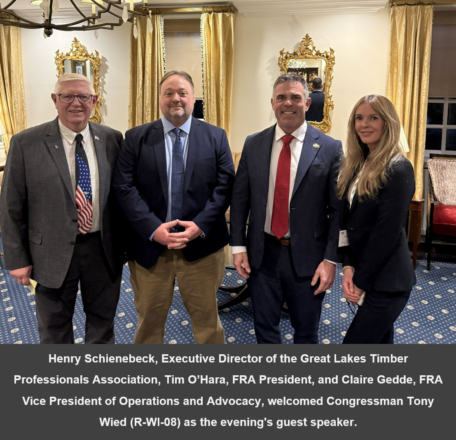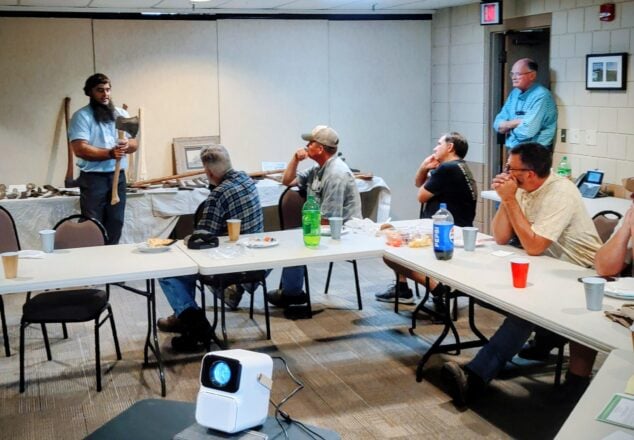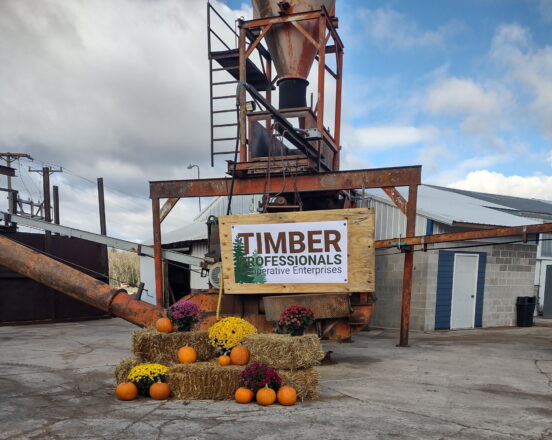Being a Woman in Forestry
When I sat down to write this blog for FRA, I thought about all the experiences I’ve had and all the roles I’ve filled in my +15 years in the Forest Industry. I’ve been a Landowner Assistance Intern, a Development Candidate, a Harvesting Administrator, a Silviculture Forester, a Harvest Planner, a Wood Flow Manager, and now a District Manager. But while my titles have changed over the years, a few things have remained constant: I am a Forester, and I am a woman. Perhaps notable, I have remained a “dirt forester” all this time, lacing up my Chippewa’s every day and heading to the woods to supervise contractors and make silvicultural prescriptions. Turns out, not all women foresters do that. In fact, most do not. Allow me to digress…
When I was a student at the University of Florida, our small Forestry program was made up of about 60% women and 40% men. We were wildly popular at Conclave because “we brought all the women!” Now, of course, I knew at the time that Forestry was a male-dominated field, but it didn’t really feel that way because my class was mostly women. Then, as a young forester starting out in my career, the organization I worked for had recently embarked on what today we’d probably call a “DEI Campaign,” hiring mostly women and minorities. So, in my first several years of employment, I was surrounded by a team made up of about 50% women. I was, in no way, “special” just because I was a woman. The expectations placed upon me were the same as those placed upon everyone else.
I worked with a few incredible lady foresters through those years, women I’d put up against anyone in terms of their ability to assess a stand of timber, set an errant contractor straight, or know just exactly how to address an issue with a neighboring landowner. They didn’t do those things well because they were women, they did them well because they were good foresters; smart, experienced, and well-rounded. I learned a good deal of what I know about logging, harvest planning, and procurement from high-performing women who were my predecessors and mentors. And at the time, I didn’t give much thought to the fact that they were women.
Fast forward ten or so years, and I change employers, joining a team of all men. For the first time in my forestry-life, I was the token female. At first, my team was noticeably cautious around me, perhaps afraid to offend me or say the wrong thing. They always respected my abilities and experience, but now that they know me well and are confident that my language and sense of humor are every bit as spicy as theirs, they’re comfortable with me. They treat me as an equal, which is all I ask. In that way, perhaps I’ve paved the way for more women to join our team.
Of that 60% of my college class that was made up of women, I am the sole female graduate that has made a career in the Forest Industry. Others have found their calling in an Environmental field, with an NGO, or in government forestry, but most landed in completely unrelated fields like insurance, real estate, medicine, and art. Why? What makes me so different from the rest of the women in my class? Is it simply my persistent personality, or have I been presented with a different set of opportunities than the other ladies I graduated with? Probably a bit of both.
While I likely owe my career to the fact that my first employer hired me because I’m a woman, the thought of hiring someone because they’re a woman is maddening! I’m certain I’m not alone in wrestling with this conundrum.
As we as an industry embark on the mission of continuing to improve our DEI, know that there is no magic bullet to building a diverse workforce. It’ll take time, patience, some uncomfortable moments, and above all else, the right, brave, persistent people. It’ll take good role models and folks willing to participate in outreach efforts to demonstrate that Forest Industry is an incredible career path. My efforts towards this goal are numerous, from being the absolute best dirt forester I can be to speaking at Career Day at my daughter’s elementary school. The last time I explained my job to a group of 3rd graders, a little girl raised her hand and exclaimed, “You mean girls can work in the woods?!”
I hope my legacy is one of having created an environment where anyone who wants to work with us in the Forest Industry will pursue it.


